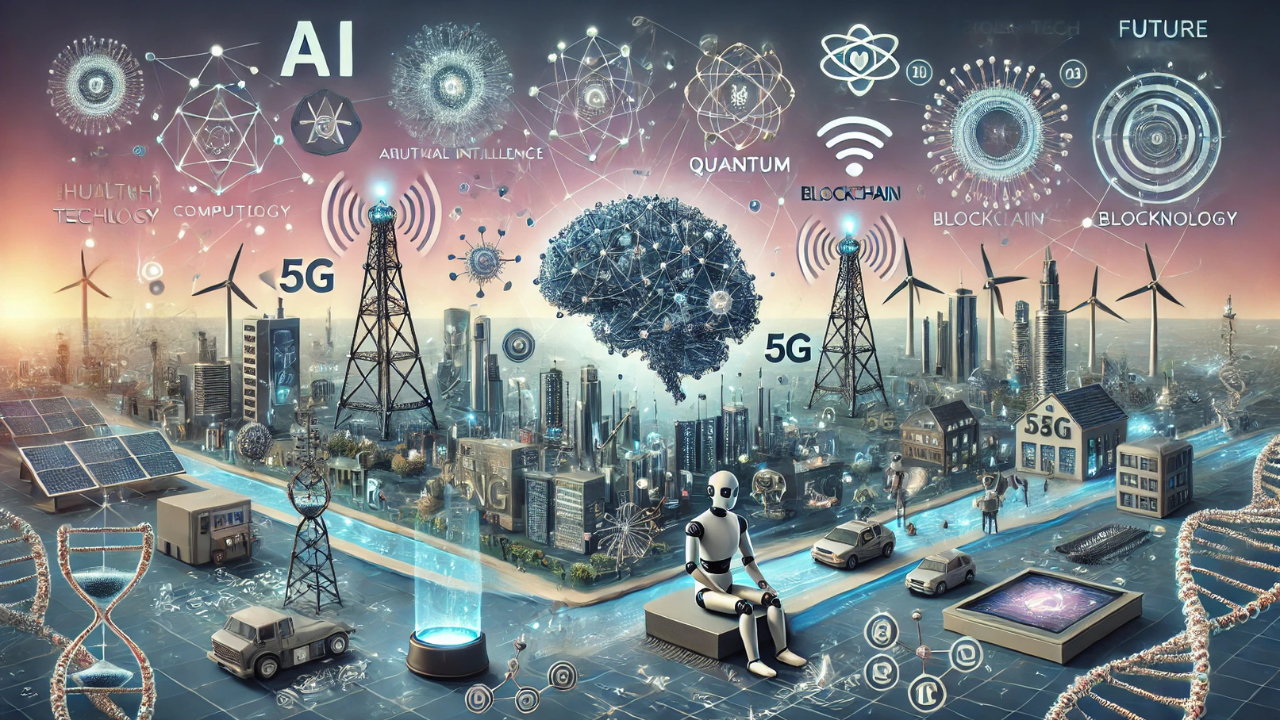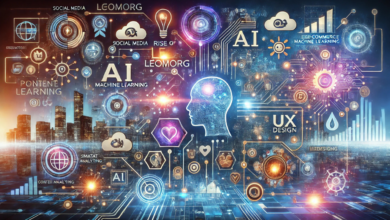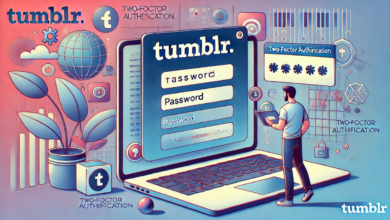betechit tech news of technology is evolving at an unprecedented rate, constantly pushing the boundaries of innovation and reshaping industries across the globe. In this comprehensive article, we’ll take a closer look at the future of technology, betechit tech newsthe key trends and emerging technologies driving change, and provide insights into how these advancements will likely impact our daily lives, businesses, and society.
The Future of Technology: An Overview
The rapid pace of technological innovation has made the future seem exciting and uncertain. From artificial intelligence (AI) to quantum computing, augmented reality (AR), and blockchain, the technologies of tomorrow promise to fundamentally alter how we live, work, and interact with the world around us. As we venture into thebetechit tech news, understanding these trends and their potential applications is essential for individuals, businesses, and governments.
The convergence of various cutting-edge technologies, including AI, machine learning, 5G, IoT (Internet of Things), and biotechnology, will define the trajectory of technological advancement. In this article, we will delve into some of the most criticalbetechit tech news on the horizon and explore how they are expected to shape our future.
Artificial Intelligence (AI) and Machine Learning: The Next Frontier
AI and machine learning are no longer buzzwords; they have become integral parts of many industries, including healthcare, finance, education, and retail. Over the next decade, AI is poised to make even more significant strides, evolving from simple task automation to complex problem-solving capabilities. This technology can enhance human intelligence, enabling machines to understand, learn, and make decisions in ways previously thought to be exclusive to humans.
Key areas of AI innovation include:
- Natural Language Processing (NLP): Advances in NLP will enable machines to understand and interpret human language with greater accuracy, revolutionizing customer service, content creation, and translation services.
- AI in Healthcare: AI-powered diagnostics, personalized medicine, and drug discovery are transforming healthcare. Machine learning algorithms can analyze vast amounts of medical data to identify patterns and predict outcomes, improving patient care and treatment plans.
- Autonomous Vehicles: AI is the driving force behind self-driving cars and trucks. As AI technology advances, the future of transportation will be transformed, making roadways safer and more efficient.
The future of AI and machine learning is vast, with applications across nearly every sector. Businesses that embrace these technologies will be better positioned to stay competitive, improve efficiency, and deliver personalized experiences to their customers.
Quantum Computing: Revolutionizing Problem Solving
Quantum computing is another technology that holds great promise for the future. Unlike classical computers, which process information in binary form (0s and 1s), quantum computers use quantum bits, or qubits, that can simultaneously represent and store information in multiple states. This allows quantum computers to perform specific calculations exponentially faster than traditional computers.
While quantum computing is still in its early stages, its potential to revolutionize fields such as cryptography, drug discovery, and material science is immense. Researchers are optimistic that quantum computers will be able to solve complex problems currently beyond the reach of even the most powerful supercomputers.
For example, in cybersecurity, quantum computers could be used to break existing encryption algorithms, necessitating the development of new, quantum-resistant cryptographic techniques. In healthcare, quantum computing could lead to breakthroughs in understanding diseases and the creation of novel drugs.
5G and the Internet of Things (IoT): Connecting the World
5G, the fifth generation of wireless technology, promises to revolutionize how we connect to the internet and interact with our devices. With its significantly faster speeds, lower latency, and higher capacity, 5G will enable a new era of connectivity, making it possible for billions of devices to communicate in real-time.
Key benefits of 5G include:
- Faster Speeds: 5G networks will offer download speeds up to 100 times faster than 4G, enabling seamless streaming, ultra-fast downloads, and real-time gaming experiences.
- Low Latency: With latency reduced to milliseconds, 5G will support real-time applications like remote surgeries, autonomous vehicles, and smart cities.
- Enhanced Connectivity: 5 G will significantly improve the Internet of Things (IoT), as it will allow for the connection of a vast number of devices, from smart homes to industrial sensors, all communicating simultaneously and efficiently.
As 5G networks roll out worldwide, the number of connected devices will skyrocket, creating smart cities, intelligent transportation systems, and advanced industrial automation. These advancements will create new opportunities for businesses and improve the quality of life for consumers.
Blockchain Technology: Securing the Digital World
Blockchain, the technology behind cryptocurrencies like Bitcoin, is gaining traction beyond the financial sector. Its decentralized, transparent, and secure nature makes it ideal for various applications, from supply chain management to voting systems and digital identity verification.
One of the most significant advantages of blockchain is its ability to provide an immutable record of transactions, making it virtually tamper-proof. This feature is handy for industries that require high levels of security and trust, such as banking, healthcare, and government services.
Blockchain technology could be central to securing digital transactions, reducing fraud, and enhancing privacy. Additionally, smart contracts—self-executing contracts with the terms of the agreement written directly into code—could automate many business processes, reducing the need for intermediaries and increasing efficiency.
Biotechnology and HealthTech: A Healthier Future
Biotechnology and health are areas of technology set to revolutionize healthcare in the coming years. Advancements in gene editing, personalized medicine, and health monitoring devices are already making waves in the medical field, and the future looks even more promising.
Key trends in Biotechnology include:
- CRISPR Gene Editing: CRISPR technology has already shown promise in editing genes to treat genetic disorders. In the future, it could enable the prevention or cure of conditions like cancer, HIV, and genetic diseases.
- Wearable Health Devices: The proliferation of wearable health devices, such as smartwatches and fitness trackers, will continue to grow. These devices will monitor everything from heart rate to blood oxygen levels, providing individuals with real-time health data and helping healthcare providers offer more personalized care.
- Telemedicine and AI in Healthcare: Telemedicine adoption is expected to increase, with AI-powered tools providing remote diagnostics, virtual consultations, and personalized health recommendations.
Integrating biotechnology with digital health solutions will change how patients and doctors interact, leading to more efficient treatments, improved patient outcomes, and better overall health management.
Conclusion: Embracing the Future
The future of technology is bright, filled with groundbreaking innovations that will shape every aspect of our lives. From AI and quantum computing to 5G, blockchain, and biotechnology, these technologies have the potential to transform industries, enhance the quality of life, and solve some of the world’s most pressing challenges.
However, as we embrace these advancements, we must consider their ethical, social, and economic implications. The rapid pace of technological change presents opportunities and challenges, and it is essential to ensure that these technologies are used responsibly, equitably, and for all benefits.
As we move forward, the future of technology will be defined by those who are not only creating the next significant innovation but also working to ensure its positive and sustainable impact.
FAQs
- What is AI’s role in the future of technology? AI is expected to play a central role by enabling machines to perform complex tasks, such as data analysis, problem-solving, and decision-making. It will revolutionize industries like healthcare, transportation, and finance.
- How will quantum computing impact industries? Quantum computing promises to solve complex problems beyond traditional computers’ reach, impacting industries such as cryptography, drug discovery, and material science, leading to breakthroughs and innovations.
- What is the significance of 5G in the future of technology? 5G will enable faster internet speeds, lower latency, and more reliable connectivity. It will fuel the growth of IoT, smart cities, and autonomous vehicles, making real-time communication and data exchange more efficient.
- What are the potential applications of blockchain technology? Blockchain has the potential to revolutionize industries by offering secure, transparent, and tamper-proof solutions. Its applications include supply chain management, digital identity verification, and financial transactions.
- How is biotechnology shaping the future of healthcare? Biotechnology, including gene editing and personalized medicine, is transforming healthcare by enabling the treatment of genetic disorders, improving diagnostic accuracy, and advancing health monitoring technologies.
You May Also Read: https://ventsweekly.news/nftrandomize/



